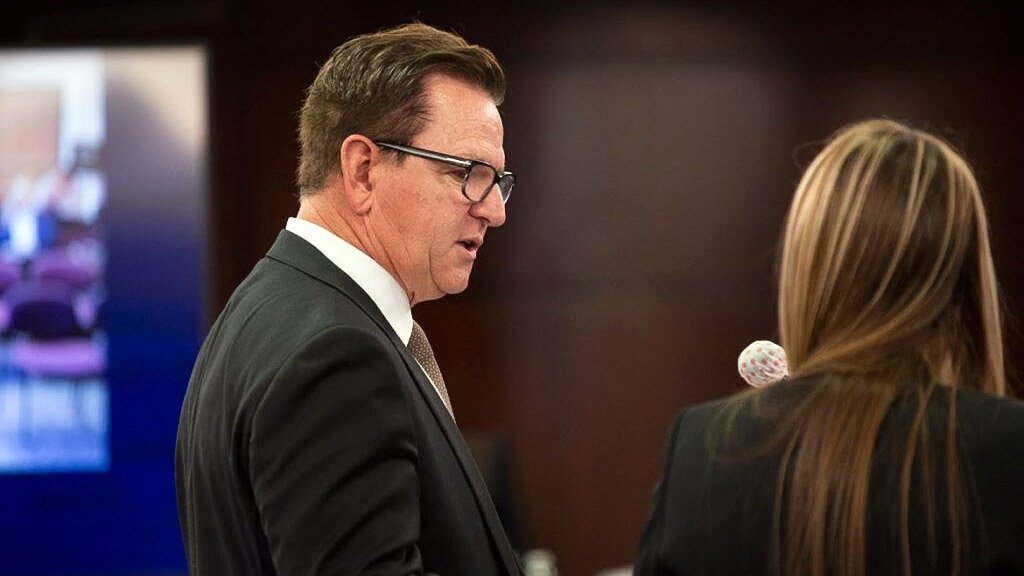Massachusetts regulators share draft study on sports betting with negotiators amid last days of bill discussions

The Massachusetts Gaming Commission has shared a draft version of an unreleased study of sports betting frameworks, revenues and social outcomes to House and Senate negotiators working to resolve their differences around the issue. The move comes as Massachusetts House Ways and Means Chairman Aaron Michlewitz expressed hopes of a compromise in the remaining days of the session.
Six lawmakers have been talking since early June to find a compromise between the sports betting bills the House and Senate passed respectively. The conference committee tasked with hammering out an agreement has until Sunday, when the session ends, to reach a consensus.
As the deadline nears, the Massachusetts Gaming Commission told the committee that it is available as a resource, reports State House News Service. Both the House and Senate versions would put the Commission in charge of overseeing the activity and industry.
In preparation for potential legalization, the Commission’s research arm recently finished an ad hoc report examining the expected impacts of sports wagering in the state. The report is complete but is going through the commission’s external review process, meaning it won’t be ready for public release until late August or early September, according to an official. However, the Commission decided to share that draft with the committee given the timeliness of the issue.

“We have communicated with the members of the conference committee and provided them an advanced copy in draft form so they would have the information and they would be able to utilize that,” Gaming Commission Executive Director Karen Wells said at the commission’s Tuesday meeting, as reported by SHNS. “And we’ve also indicated our team is available for any questions or anything that they would need with respect to this.”
While a compromise may still be reached in the final days of the session, a set of issues must be resolved by the committee for this to happen. The one that seems to be the most divisive is college sports betting: the House bill allows this form of gaming, while the Senate’s proposal does not, something House Speaker Ron Mariano described as a “dealbreaker.”
Additionally, the Senate bill features tighter restrictions on sports betting advertising, marketing and the use of credit cards for gambling. In contrast, the House bill does not feature these rigid provisions, and includes a lower tax rate, both for in-person and online wagering. While the House bill taxes betting at physical locations at 12.5% and online at 15%, the Senate proposal taxes at 20% and 35% respectively.
It is believed negotiators could be working towards a compromise on college sports that would allow bets on contests only if they do not involve in-state colleges or collegiate games played within Massachusetts’ borders. Earlier this week, Senate President Karen Spilka hinted that could be a potential solution to the disagreement.
Mass. Senate President Karen Spilka
While Massachusetts House Ways and Means Chairman Aaron Michlewitz, one of the sports betting bill negotiators, declined to disclose whether that approach is under consideration in conference committee, he did say he is “still hopeful” that a compromise may emerge imminently.
“There’s still a good amount of time here left to go,” Michlewitz told MassLive Wednesday afternoon, despite mere days remaining in session. “A lot can get done in a short amount of time, as we’ve seen.” His tone struck a more optimistic note than Mariano’s remarks last week, when the House Speaker lamented lawmakers were “far apart” in reaching a consensus.
“I think there’s an opportunity to include college sports, rather than let it be only handled by bookies,” Mariano had said, claiming he was reluctant “to turn over college sports” to the black market. “I don’t understand if you’re going to do sports betting why you would leave out Final Four bowl games and the whole college football season. It doesn’t seem to be worth doing if you’re going to leave those."
In his remarks Wednesday, Michlewitz agreed with Mariano on the importance of college sports, stating that the House’s position has been that wagering on collegiate events is “critical” to making a complete new market.
Mass. House Speaker Ron Mariano
“If you don’t have college sports betting, then not only do you not have an option for the consumer, but you also do not have an option for people that may choose to want to use it on occasion but also do the other stuff, and they may decide to stick to the black market because that’s more convenient,” the conference committee negotiator noted.
Sports betting approval counts with the support of Gov. Charlie Baker, who has long pushed for legalization and said he would even support collegiate betting, depending on the bill’s language. Additionally, sports gaming has the backing of the state’s casinos, which last Monday urged legislators to pass a bill, arguing the current prohibition is affecting their businesses.
In conversation with Yogonet this week, Brandt Iden, Head of Government Affairs US, Sportradar, said he believes a compromise is still possible, with an agreement potentially being reached as late as Saturday, or on Sunday morning. “It can be done, but I'm not overly optimistic: I give it a probably less than 50% chance,” the expert stated.
“What I'm seeing here is a situation where sports betting is probably going to be politically traded with something else,” Iden said. “The House seems to be more interested in getting the sports betting bill done than the Senate does at the moment. The Senate is looking for things like a mental health reform package they're trying to push, and looking at a tax relief plan. Those issues may get lumped together, with some political maneuvering between the House and the Senate that may result in an agreement.”



















































